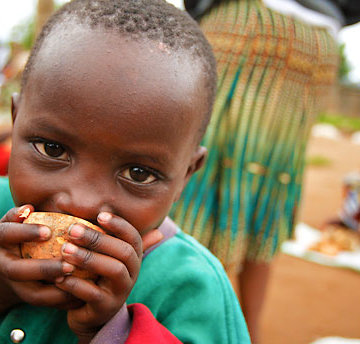- About
- Topics
- Picks
- Audio
- Story
- In-Depth
- Opinion
- News
- Donate
- Signup for our newsletterOur Editors' Best Picks.Send
Read, Debate: Engage.
If you've decided to make a charitable donation, the choice of which charity to support can be overwhelming.
A recent article in the Atlantic charted one man's quest to decide where to donate, and how to ensure the greatest 'good' from his donation.
As editor Derek Thompson writes, "Perhaps the most piercing lesson from effective altruism is that one can make an astonishing difference in the world with a pinch of logic and dash of math."
Taking the theory (which research supports) that doubling one's income raises that person's happiness by approximately the same amount, and the knowledge that an average-income American family sits within the world's top 1% of income earners, then donating just 1% of the family's income to a rice farming family in India would have a significant effect with a relatively small amount of money.
The story explores a variety of options and theories, but one that stands out is the Next Dollar Test. Thompson explains in the piece, "the wisest question is not 'What is the greatest good?' but rather 'What is the greatest good where the next dollar could have the greatest impact?'"
The piece is long, but important. It explains how anyone with disposable income can make a charitable impact on the world, often without significantly changing one's own lifestyle or spending habits.
